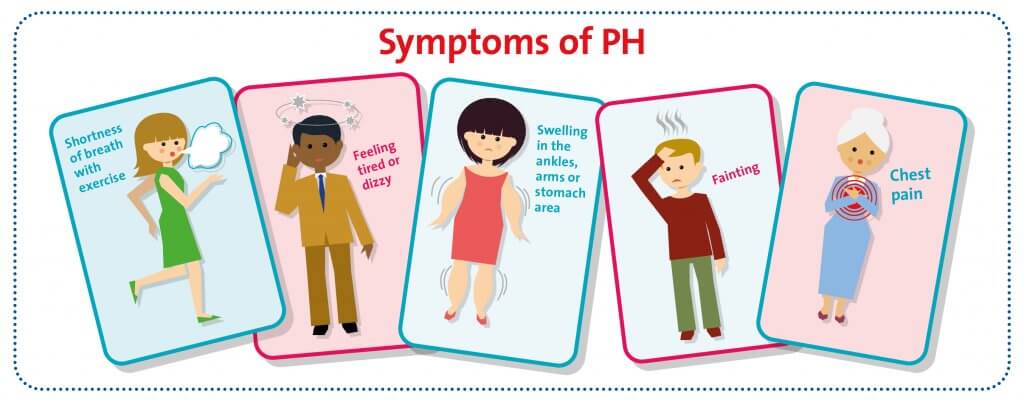Click here to watch a short video which explains more about pulmonary hypertension and how it affects the body
Pulmonary hypertension (PH) is a rare condition that causes high blood pressure in the blood vessels connecting the heart and lungs (the pulmonary arteries).
When a person develops PH, the walls of the pulmonary arteries become stiff and thickened, or blocked by blood clots. This makes it difficult for them to expand; and trying to pump blood through these tightened, narrowed, scarred or blocked arteries puts increasing strain on the right side of the heart as it tries to do its job. The essential task of pumping blood into the lungs to pick up oxygen which can then be circulated to every cell in the body becomes much harder.
PH is a serious medical condition, and should not be confused with hypertension (high blood pressure). Click here to learn more about what PH is.
You will have a number of tests to see if you have PH. If you do have it, it is important to find out which type of PH you have. Not all forms of PH are serious, and some do not need to be treated directly.

The main symptom of PH is breathlessness. This is the symptom that people will normally notice first. Other symptoms may include dizziness, feeling faint, swelling of the feet or ankles, and chest pain (particularly during exercise).
This simple animation explains exactly what the condition is:
When you have PH, sometimes it can be hard to explain to other people how it makes you feel. And as well as physical symptoms, it can affect you in other ways too. Click here to watch a short video designed to help people understand.